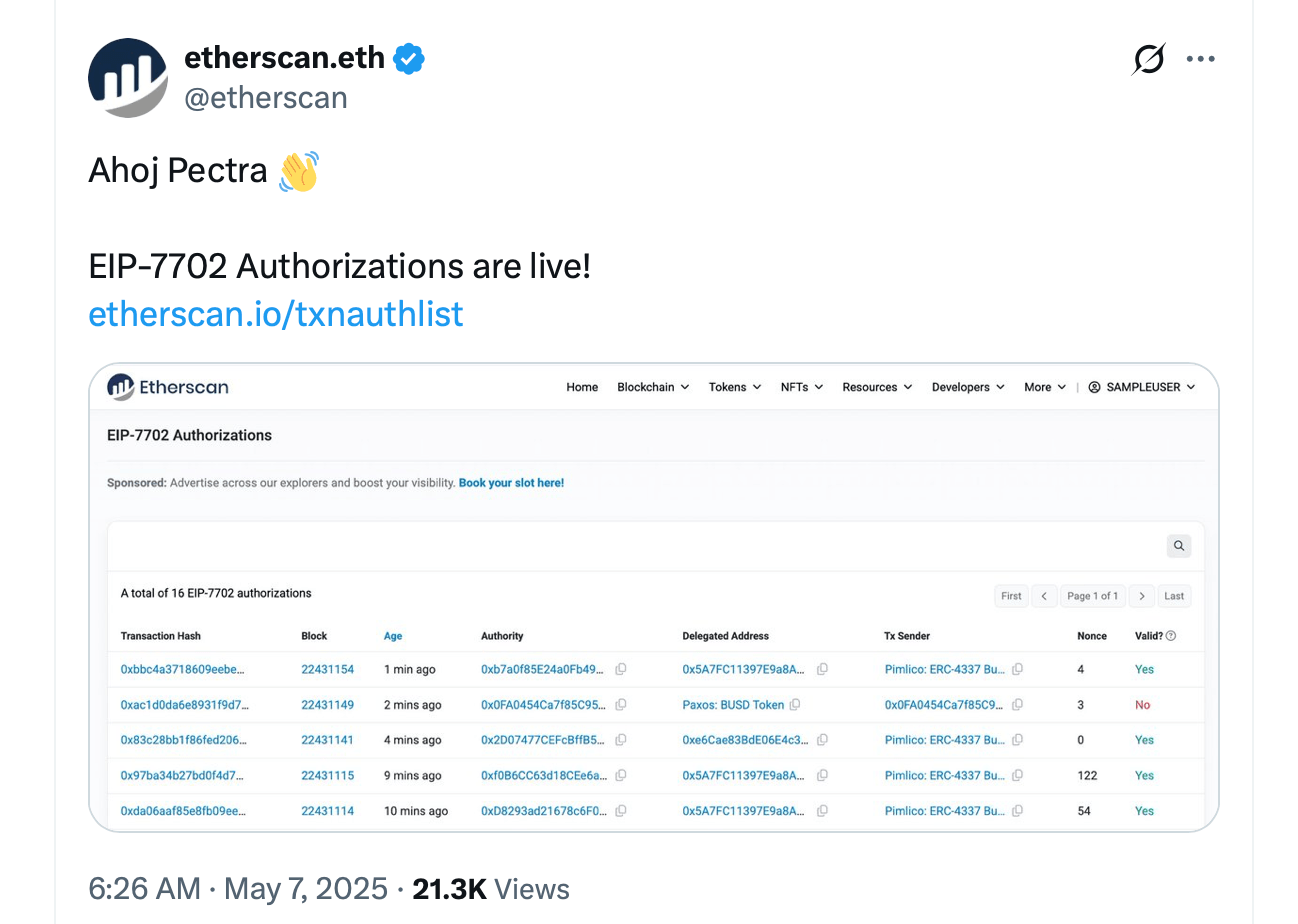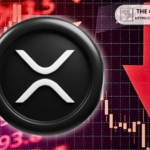Etherscan has launched an EIP-7702 authorization monitoring tool following the Pectra upgrade of Ethereum. This introduced 11 improvement proposals to enhance scalability, security, and user experience.
Ethereum users gain flexibility in smart contracts since EIP-7702
The Ethereum Pectra Upgrade, which combines Prague and Electra updates, was released on May 7, 2025 and has activated 11 Ethereum Improvement Proposals (EIPs), including EIP-7702. This proposal allows externally owned accounts (EOAS) to temporarily delegate transaction execution to smart contracts, blending user-controlled accounts with advanced smart contract features.
 EIP-7702 introduces “Set of Code Transactions” (Type 0x04) to Ethereum. Ethereum assigns a delegation indicator to the EOA and redirects the operation to the specified contract. Users will approve the delegation via an “authorization_list” containing chain-specific data and are reversibly modified via a code reset transaction. This allows EOAS to set up batch transactions, sponsor gas fees, or custom permissions without permanent conversion to smart contracts.
EIP-7702 introduces “Set of Code Transactions” (Type 0x04) to Ethereum. Ethereum assigns a delegation indicator to the EOA and redirects the operation to the specified contract. Users will approve the delegation via an “authorization_list” containing chain-specific data and are reversibly modified via a code reset transaction. This allows EOAS to set up batch transactions, sponsor gas fees, or custom permissions without permanent conversion to smart contracts.
Key features include granular permissions such as atomic transaction bundles for efficiency, third-party gas fee compensation, and token access restrictions. However, security risks continue. Delegating to an unopened contract could expose EOAs to exploits, but inappropriate NonCE management could allow replay attacks. Users must actively revoke their delegations to mitigate risk.
The standard matches existing account abstraction frameworks such as ERC-4337, ensuring compatibility with wallets and distributed apps. The EIP-7702 debuted on Ethereum’s Sepolia Testnet and is currently active on the mainnet following the deployment of Pectra.
Etherscan updates allow users to track active and historical authentication in the Authorization List tab of the address page, providing transparency to delegated privileges.
As Ethereum moves to the hybrid accounts model, the EIP-7702 balances user sovereignty and flexibility, marking a pivotal step in the evolution of blockchain accessibility. Developers are required to prioritize security audits and user education to maximize the benefits of their proposals.






